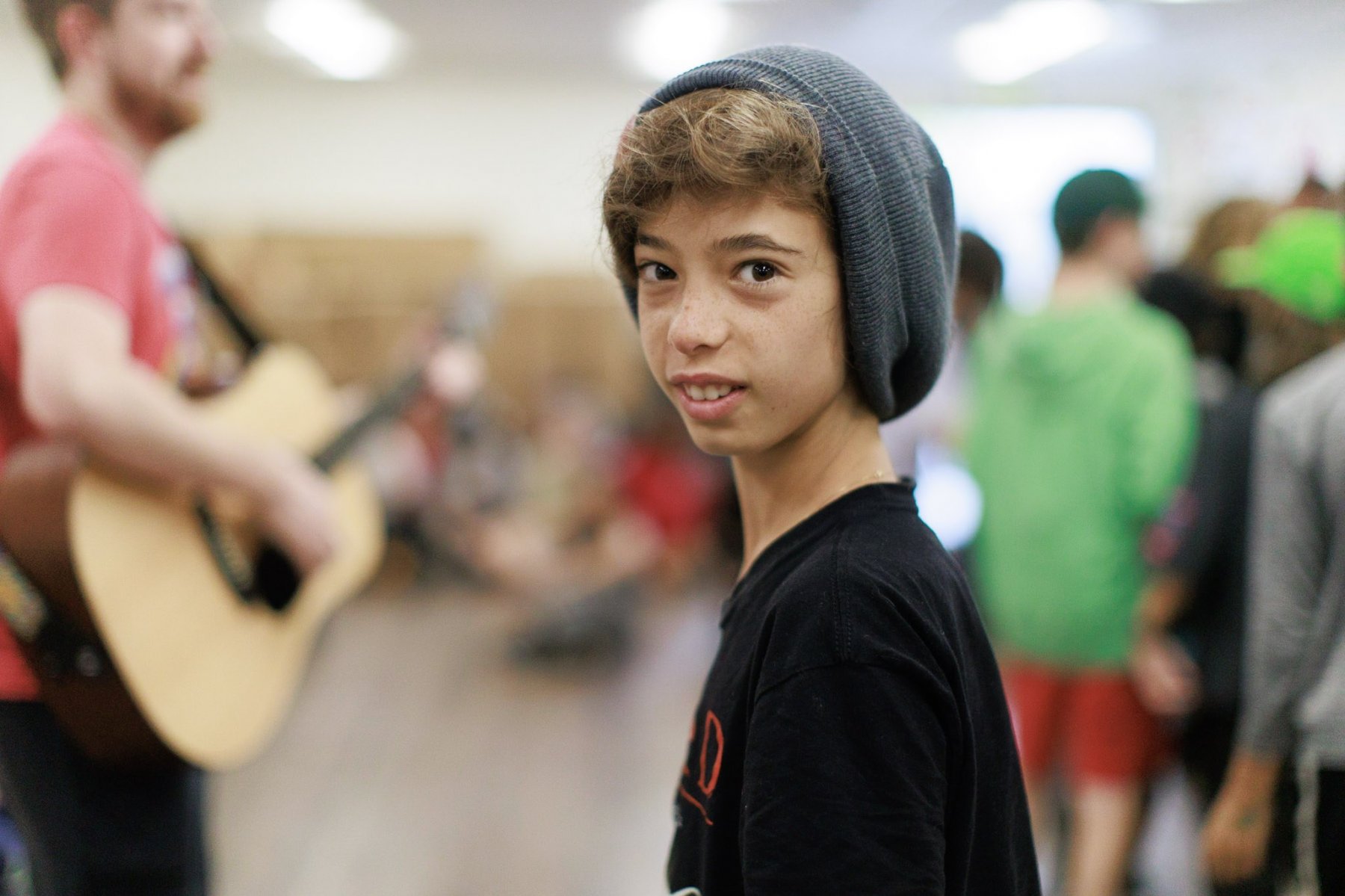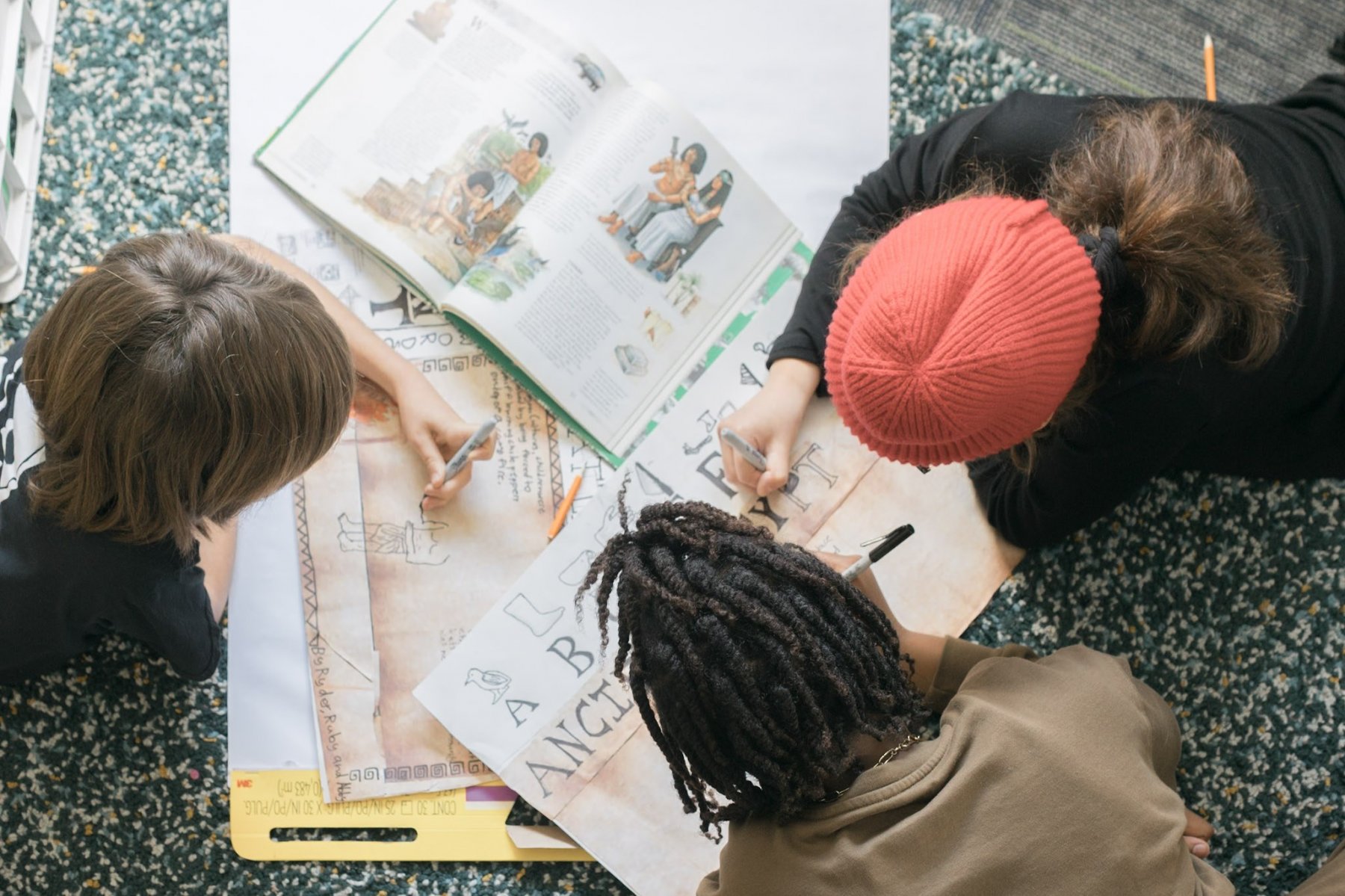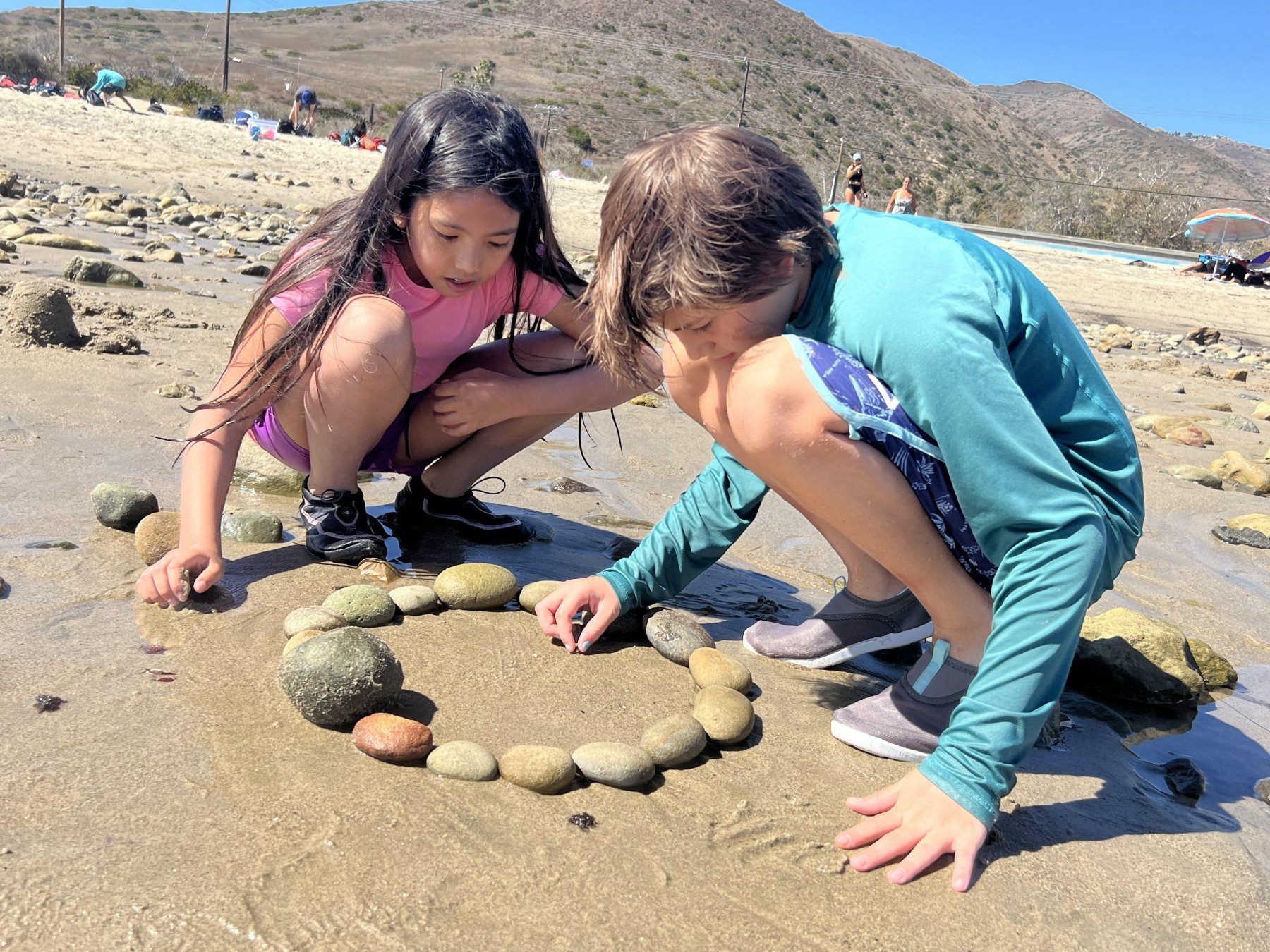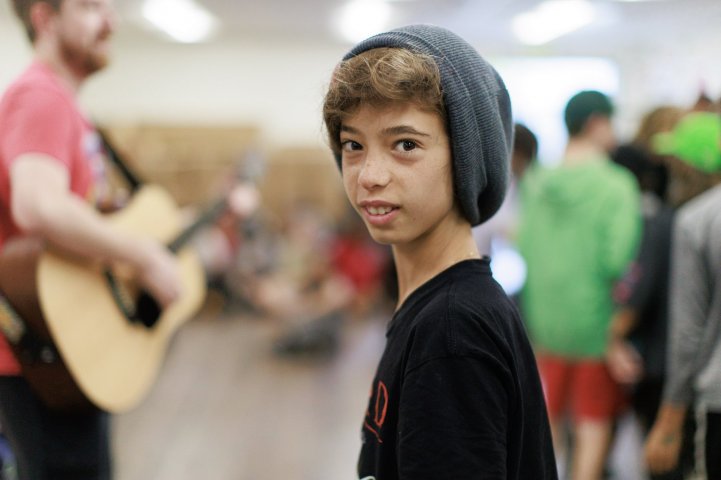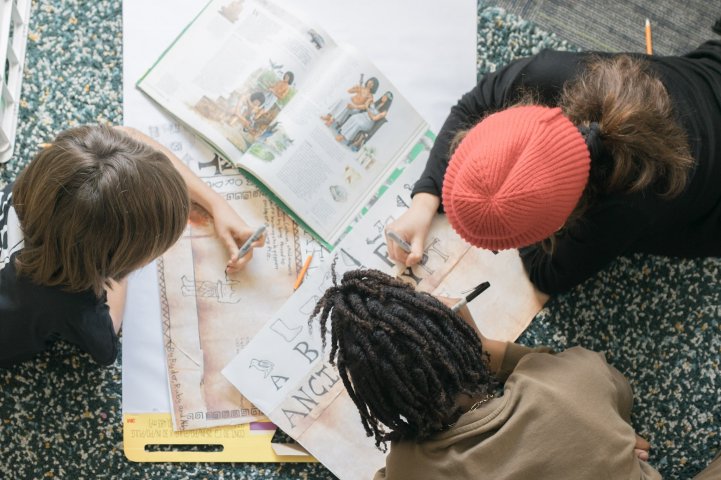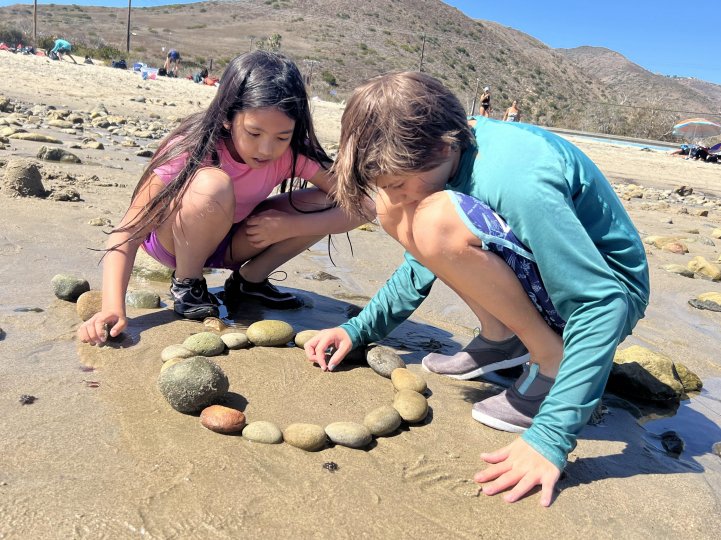Overview
The elementary teachers develop a social studies theme for the school year and build an interdisciplinary curriculum around the theme. Science, math, the arts, and language arts are all integrated with that theme. Emphasis is placed on active learning experiences for the students.
Language Arts
Using a balanced literacy approach, language arts is integrated into all curricular areas and includes reading, writing, speaking, and listening. The five components of a balanced literacy reading program are independent reading, guided reading, shared reading, read aloud, and word study. This approach allows teachers to differentiate instruction based on the needs of each student. The writing program aims to help students comfortably put their ideas on paper and celebrate the effort and process, not just the product. Students brainstorm, draft, revise, edit, and then publish different pieces throughout the year. Spelling is integrated daily into reading and writing. Words Their Way, Wordly Wise, and Explode the Code are used to support and enhance student learning.
Responsive Classroom
In each elementary classroom and throughout the elementary school, a sense of community is fostered using the Responsive Classroom approach. Conflict resolution, teamwork, collaborative learning, and class meetings are strategies used to build a sense of individual and collective responsibility and to meet social and emotional learning needs. In each classroom, the day begins with morning meeting where students greet each other, share announcements, and engage in community building activities. Throughout the day, students practice the skills of listening, responding, empathizing, and respecting peers and teachers.
Everyday Math
Math instruction and learning is enhanced by the use of the Everyday Mathematics program. Everyday Mathematics was developed by the University of Chicago School Mathematics Project to enable elementary school children to learn more mathematical content and become lifelong mathematical thinkers. The content in each grade provides all children with a balanced math curriculum that is rich in real-world, problem-solving opportunities. Teachers also integrate the math curriculum with the class theme, supplement the program’s materials when necessary, and use a variety of grouping strategies to increase student learning.
Science
Teachers design their science curriculum each year, integrating it with the social studies theme and emphasizing hands-on experiences. Science learning often takes place at Waverly’s organic farm and on field trips. Our approach allows students to think critically and creatively, problem-solve, and learn fundamental science skills such as asking questions, creating hypotheses, performing experiments, and drawing conclusions, both in individual and group settings.
Outdoor Classroom
The outdoor classroom developed for the elementary program gives opportunities for students to use and manipulate new materials. There are spaces and materials for climbing, digging, water play, building, tricycle riding, and painting. A variety of rotating sports equipment is used for emergent games and physical activity. All the elementary classes have a minimum of 20 minutes for recess and 45 minutes for lunch. Students in the preschool and kindergarten have more scheduled outdoor play time.
Athletics
Elementary students in the 5th and 6th grades are able to participate in middle school sports teams. Middle school teams play in fall, winter, and spring sports in the Foothill League. Sports include flag football, volleyball, basketball, soccer, and tennis. Read more about athletics.
